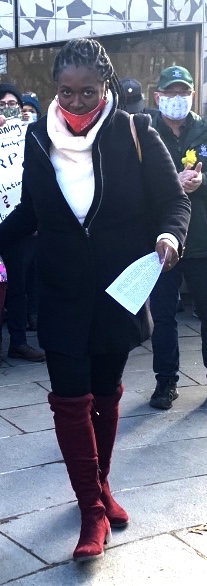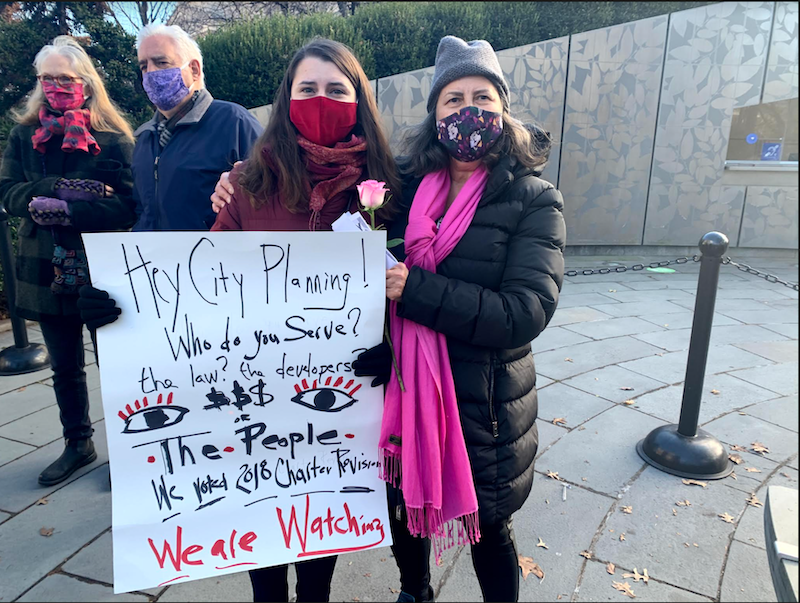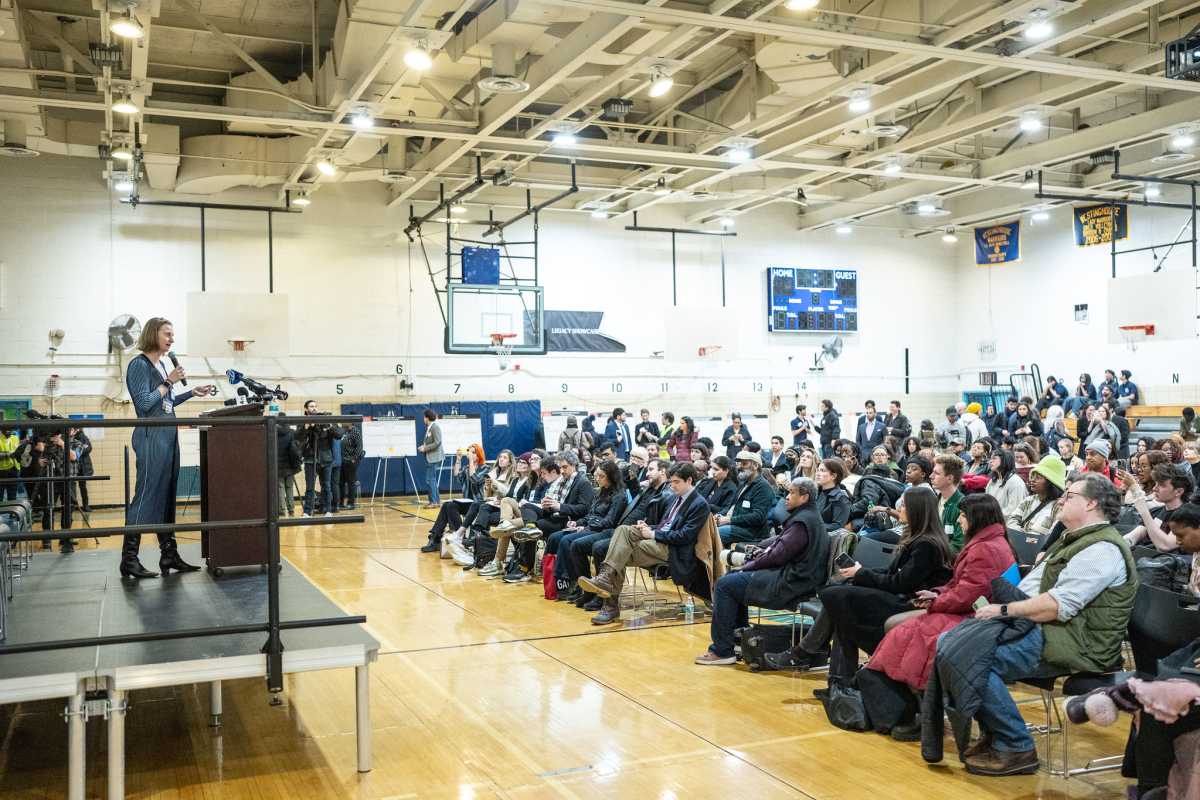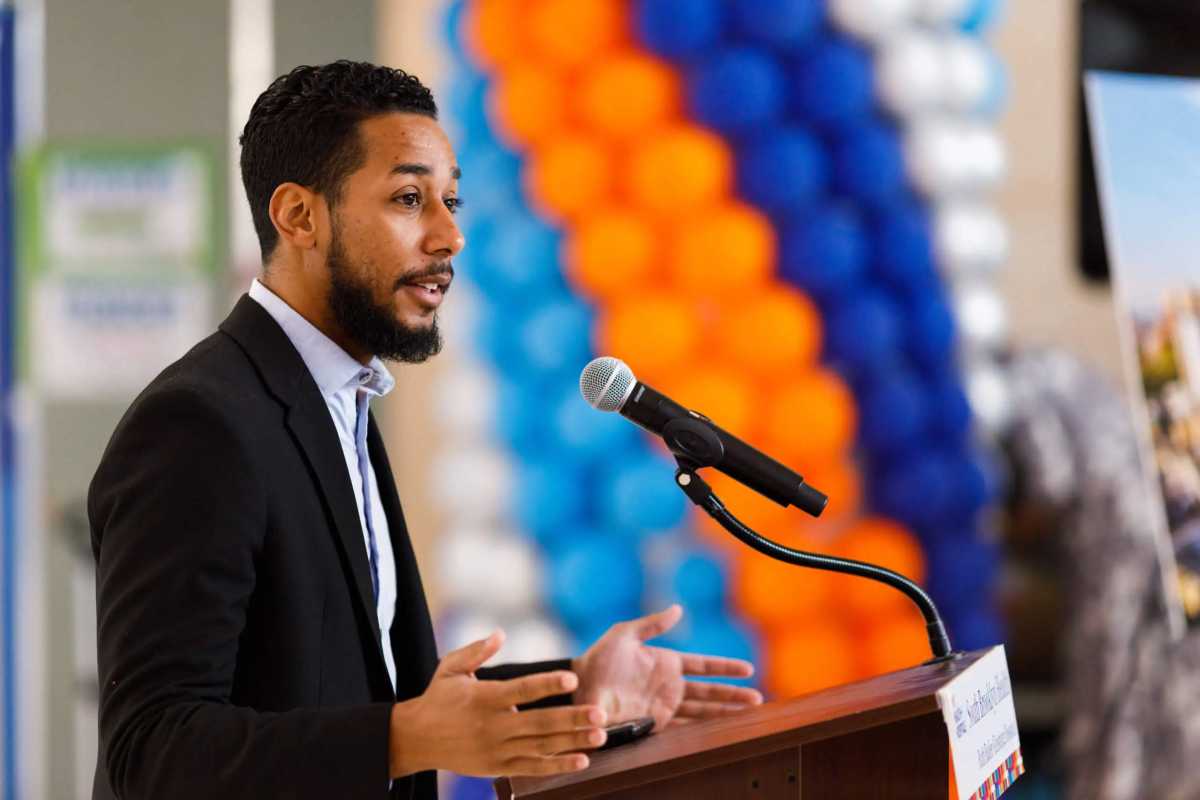Assemblywoman Elect Phara Souffrant Forrest (D-Fort Greene, Clinton Hill, Prospect Heights, Crown Heights) stood firm with garden activists yesterday as they called for the complete halting of a proposed rezoning plan at 960 Franklin Avenue.
The proposed 39-story multi-tower megadevelopment with 1,578 residential units has been striking heat amongst Brooklyn Botanical Garden (BBG) lovers, who are worried about how the towers could affect the plant and residential life.
“To have a developer come in and dismiss us with the assistance of city planning is just unacceptable,” Souffrant told KCP.

The Department of City Planning (DCP) has begun the certification process for Continuum Company’s rezoning application that seeks to change a 1991 community agreement. The original agreement limits the development of buildings taller than 12 stories along the BBG.
The proposed development would be located less than 150 feet away from the garden, and activists strongly oppose the rezoning saying that the shadows cast by the towers will have a detrimental effect on the Gardens’ greenhouses.
“This proposed project threatens the existence of the 110-year-old Brooklyn Botanical Garden because plants can’t grow without sunlight,” said President of BBG Adrian Benepe, who was also the city’s Parks Commissioner from 2002 to 2012 under the Bloomberg Administration.
His thoughts were echoed by local activist and long-time BBG volunteer Jennifer Napoli.
“It’s just too big. It’s going to block the sunlight,” she said. Her daughter, Marissa Bianco added, “It’s also going to change the atmosphere of the neighborhood.”
Their fears were mostly confirmed through the community organization Movement To Protect the People’s (MTOPP) study that showed the development would block sunlight rays from the Brooklyn Botanic Garden, Prospect Park, and the Jackie Robinson Playground that will linger for hours on some days.
However, city zoning and elected officials have since backtracked on the 1991 agreement plan, arguing that the need for more affordable housing outweighs the concerns of the past.
“I think it’s quite clear that the work that was done almost 30 years ago was for that moment in history,” Mayor de Blasio said in a September press briefing. “If you told me that we would get upwards of 8.6 million people and that the cost of renting an apartment would go so high, I just would not have believed you. So, I would say that the assumptions then versus the assumptions now are very different.”
Of the 1,500 plus residential units that would be built on site, half of 789 units would be offered at affordable rates – much more than what is required by city law.
In 2019, William Wallace, senior finance and acquisitions officer with the Continuum Development Company told the media that garden officials had rebuffed any invitation to negotiate a compromise, and without a rezoning, the buildings would be limited to seven stories, eliminating more affordable housing units.
Souffrant, who ran a great deal of her campaign on lack of affordable housing and also flat-out vetoed a plan to negotiate, commented that she appreciates de Blasio’s efforts in attempting to solve the issue, but this is not what the district was looking for.
“We must stop throwing around the word affordable when in fact the proposed apartments will be a severe burden to the people who are currently in the district,” she said.










